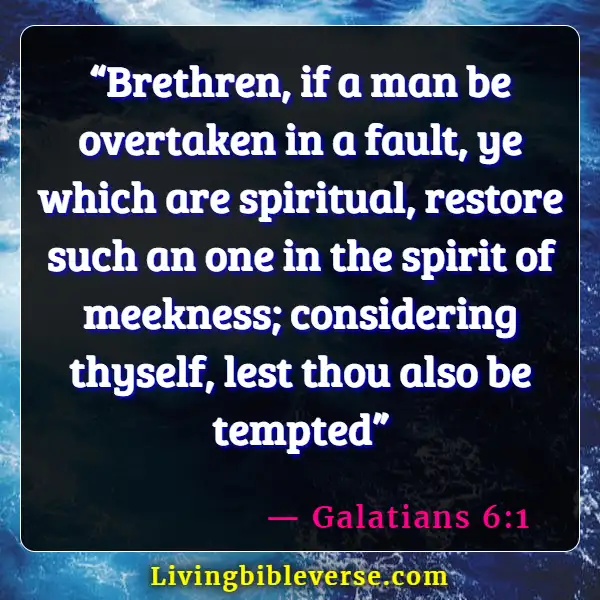For believers, the Bible offers profound wisdom on resolving conflicts through the practice of settling out of court. While it may not directly address modern legal systems, the underlying principles of forgiveness, reconciliation, and humility shine brightly throughout its teachings.
The Bible emphasizes the importance of maintaining healthy relationships and seeking peaceful resolutions. Jesus’ teachings on forgiveness and turning the other cheek encourage believers to prioritize reconciliation over disputes. This aligns with the concept of settling out of court, where parties voluntarily come to an agreement, seeking to restore harmony instead of engaging in prolonged legal battles.
The Apostle Paul’s letters emphasize unity and humility within the Christian community. Settling disputes internally rather than resorting to public litigation echoes the Bible’s call to maintain a spirit of gentleness and humility, striving to preserve the bonds of love and fellowship.
The Proverbs provide a wealth of wisdom on conflict resolution, promoting the virtues of wisdom, patience, and understanding. Pursuing settlements outside the courtroom can reflect these biblical values, fostering a culture of empathy and compassion.
In the story of the prodigal son, we witness a father’s unconditional love and forgiveness, serving as a poignant reminder of God’s grace toward us. This example encourages believers to extend grace and mercy to one another, opting for peaceful solutions that reflect the divine love they’ve experienced.
While the Bible may not directly mention settling out of court, its teachings consistently underscore the value of forgiveness, reconciliation, and harmonious relationships. As believers, following these principles can guide our approach to conflict resolution, reminding us of the ultimate goal: to honor God and demonstrate His love through our actions. By settling out of court, believers have an opportunity to exemplify biblical values in a world in need of healing and unity.

Proverbs 17:14
“The beginning of strife is as when one letteth out water: therefore leave off contention, before it be meddled with”
Romans 12:18
“If it be possible, as much as lieth in you, live peaceably with all men”
Hebrews 12:14
“Follow peace with all men, and holiness, without which no man shall see the Lord”
James 3:17
“But the wisdom that is from above is first pure, then peaceable, gentle, and easy to be intreated, full of mercy and good fruits, without partiality, and without hypocrisy”

Proverbs 15:1
“A soft answer turneth away wrath: but grievous words stir up anger”
Romans 14:19
“Let us therefore follow after the things which make for peace, and things wherewith one may edify another”
Colossians 3:13
“Forbearing one another, and forgiving one another, if any man have a quarrel against any: even as Christ forgave you, so also do ye”
Romans 12:19
“Dearly beloved, avenge not yourselves, but rather give place unto wrath: for it is written, Vengeance is mine; I will repay, saith the Lord”

Proverbs 3:30
“Strive not with a man without cause, if he have done thee no harm”
Proverbs 20:3
“It is an honour for a man to cease from strife: but every fool will be meddling”
Psalm 34:14
“Depart from evil, and do good; seek peace, and pursue it”
Philippians 2:4
“Look not every man on his own things, but every man also on the things of others”

Ephesians 4:32
“And be ye kind one to another, tenderhearted, forgiving one another, even as God for Christ’s sake hath forgiven you”
Titus 3:2
“To speak evil of no man, to be no brawlers, but gentle, shewing all meekness unto all men”
James 4:11
“Speak not evil one of another, brethren. He that speaketh evil of his brother, and judgeth his brother, speaketh evil of the law, and judgeth the law: but if thou judge the law, thou art not a doer of the law, but a judge”
Proverbs 24:29
“Say not, I will do so to him as he hath done to me: I will render to the man according to his work”

Leviticus 19:18
“Thou shalt not avenge, nor bear any grudge against the children of thy people, but thou shalt love thy neighbour as thyself: I am the Lord”
Proverbs 19:11
“The discretion of a man deferreth his anger; and it is his glory to pass over a transgression”
1 Thessalonians 5:15
“See that none render evil for evil unto any man; but ever follow that which is good, both among yourselves, and to all men”
James 5:9
“Grudge not one against another, brethren, lest ye be condemned: behold, the judge standeth before the door”

Galatians 6:1
“Brethren, if a man be overtaken in a fault, ye which are spiritual, restore such an one in the spirit of meekness; considering thyself, lest thou also be tempted”
